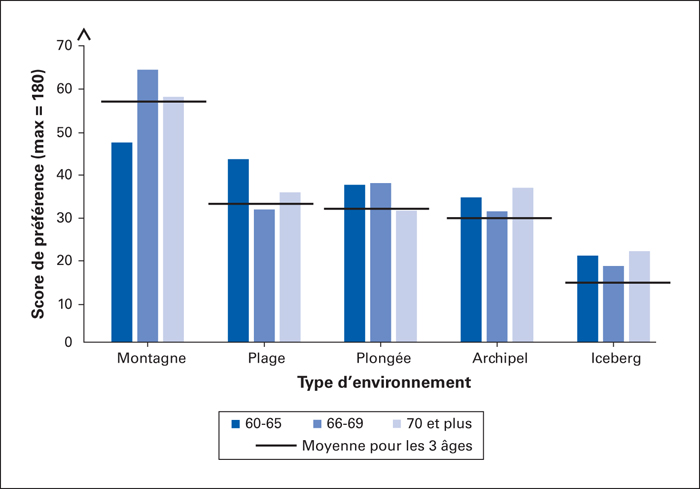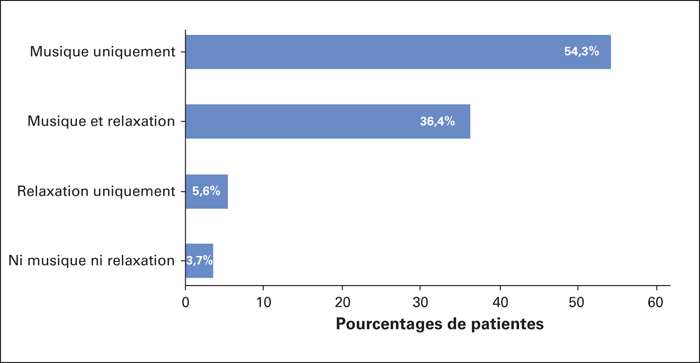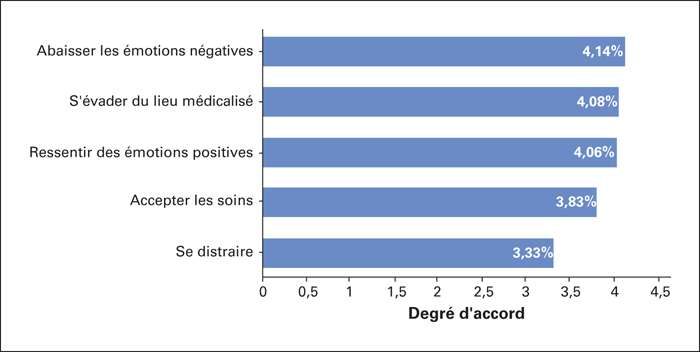Gériatrie et Psychologie Neuropsychiatrie du Vieillissement
MENUVirtual reality for elderly with breast cancer: Usefulness and acceptance Volume 17, issue 4, Décembre 2019
- Key words: elderly, echnology acceptance model, virtual reality, cancer
- DOI : 10.1684/pnv.2019.0832
- Page(s) : 415-22
- Published in: 2019
Because virtual reality seems to be increasingly considered in different medical fields, the objective of this study is to define the optimal conditions for its use in a population of elderly women with breast cancer. By using a questionnaire, we evaluated the interest but also the immersive aspirations and preferences of elderly women with regard to this innovative device, taking into account the possible changes with age (60-65 years; 66-69, 70 and over). Surprisingly, older people - whatever the age group - are particularly favorable to virtual reality without actually having experienced it. The patients primarily chose immersion in a natural environment (with a marked preference for mountain landscapes) accompanied by musical background or even guided relaxation. However, because they judged important to remain focused on the treatments, the patients especially expect VR to regulate their negative emotions (lowering anxiety) and to allow them to escape from the painful contingencies of the real. Thus, virtual reality must take them into a magical world, which is more salient than to distract them or make them laugh. The distracting power, commonly associated with VR, does not seem to be the most popular reason to use with seniors facing medical care.




